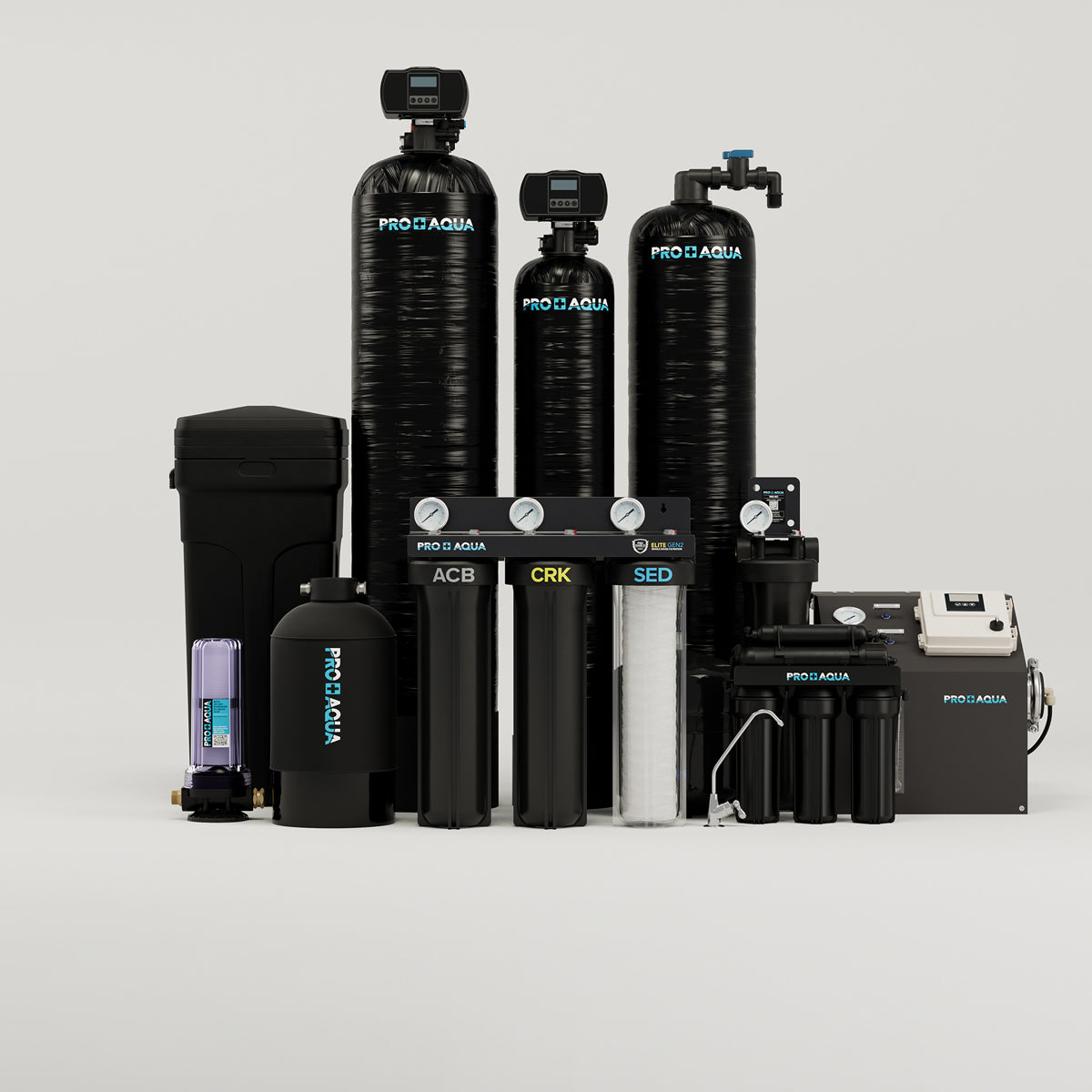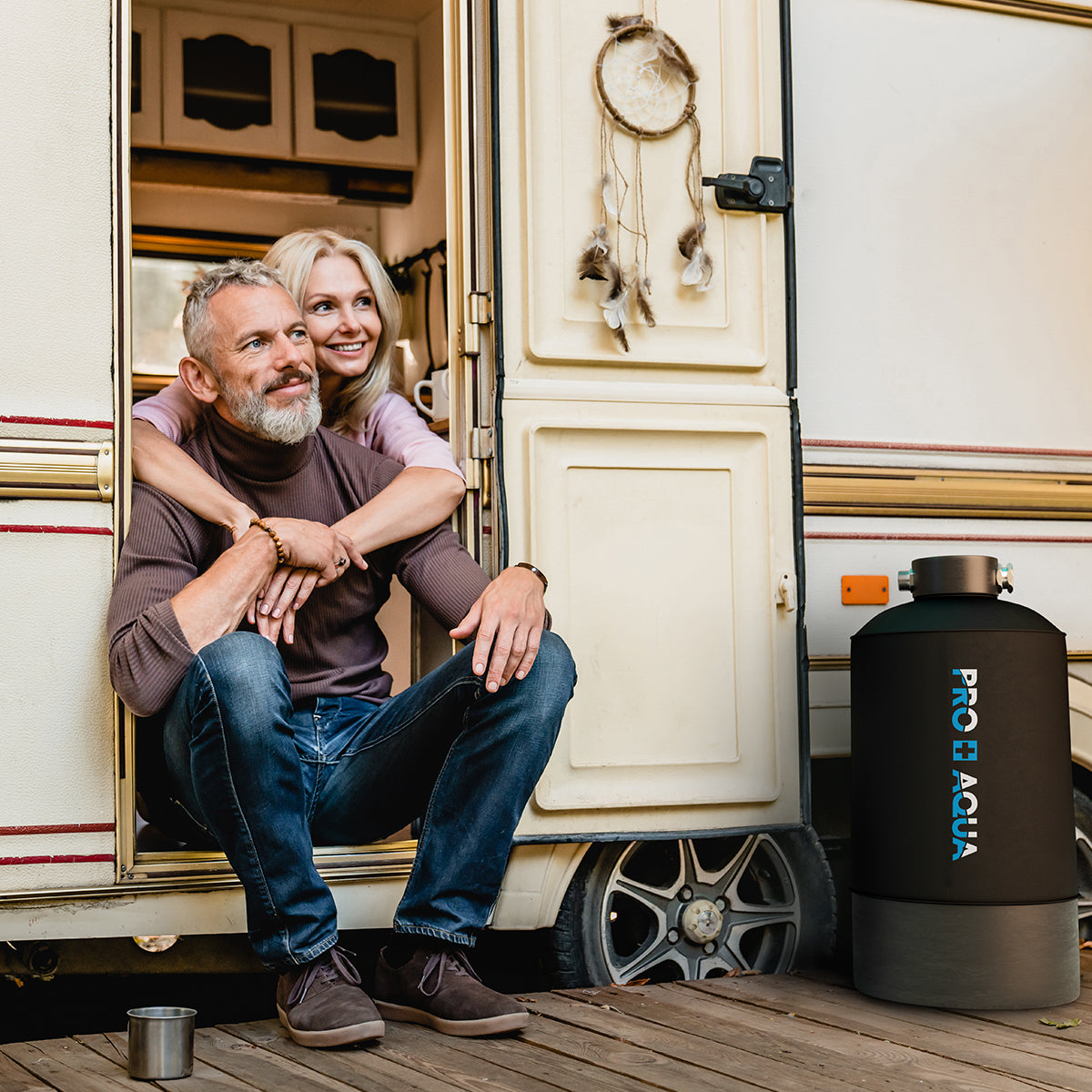As worries about water quality increase, many homeowners want solutions that do everything. They want softer water, fewer chemicals, and safer drinking options. The truth is, while water softeners are excellent at tackling hard minerals, they don’t remove chlorine.
What Does a Water Softener Actually Do?
A traditional water softener uses a process called ion exchange to remove calcium and magnesium from your water. These minerals are responsible for scale buildup and that dry, itchy feeling on your skin after a shower.
The simple answer is that water softeners do not remove chlorine. They have a much different role.
Key Functions of a Water Softener:
- Reduces hardness caused by calcium and magnesium
- Protects plumbing from scale buildup
- Extends appliance lifespan
- Improves soap and detergent efficiency
But regarding chlorine, water softeners don’t touch it.
Why Is Chlorine in My Water in the First Place?
Municipal water suppliers often add chlorine to disinfect drinking water and kill bacteria. While it’s effective at making water microbiologically safe, it can also:
- Give water a strong smell or taste
- Dry out skin and hair
- Degrade rubber seals and plumbing over time
That’s why many people look for ways to reduce or eliminate chlorine from their water supply.

Do Water Softeners Remove Chlorine?
Let’s answer the question clearly:
Do water softeners remove chlorine? No.
Will a water softener remove chlorine? Only if it includes an added filtration component.
Some modern water softener systems combine softening with filtration, which can remove or reduce chlorine. But the standard softener alone does not handle chlorine.
What You Actually Need: A Water Softener + Chlorine Filter
If chlorine is a concern, look for a system that includes carbon filtration. Activated carbon is highly effective at removing chlorine, chloramines, and even bad tastes and odors.
Here’s how you can handle both:
- Install a whole house combo system that includes a water softener and a carbon filtration stage.
- Use a separate carbon filter as a pre-filter before your water softener.
- Upgrade to a hybrid system that treats hard water and filters chlorine in one unit.

These systems are designed to tackle both hard minerals and chemical contaminants like chlorine—giving you truly better water from every tap.
The PRO+AQUA Elite Whole House Well Water Filter & Softener Bundle is designed for high-flow homes. It provides clean, odor-free, softened water from every tap without sacrificing water pressure.
What Happens If You Don’t Remove Chlorine?
While chlorine isn’t necessarily harmful in small doses, prolonged exposure can:
- Lead to dry, irritated skin and hair
- Shorten the life of rubber seals in appliances
- Cause foul-tasting or smelling water
That’s why many homeowners choose to filter chlorine out—even if it's technically “safe” to drink.
Chlorine Removal FAQs
Q: Do all water softeners remove chlorine?
A: No. Standard water softeners do not remove chlorine—they remove hardness minerals like calcium and magnesium. To remove chlorine, you'll need a system with added filtration, such as a carbon filter.
Q: Why is chlorine not removed by a regular water softener?
A: Water softeners use ion exchange to remove hard minerals. Chlorine is a chemical disinfectant, not a hardness mineral, so it passes through the softener unaffected.
Q: Can I add a chlorine filter to my existing water softener?
A: Yes. You can add a carbon filter before or after your softener. This helps reduce chlorine and improves the taste and smell of your water.
Q: What kind of filter removes chlorine from water?
A: Activated carbon filters are the most effective at removing chlorine, chloramines, and related byproducts. Whole house filtration systems or under-sink drinking water filters often include them.
Q: Will removing chlorine affect the safety of my water?
A: No, as long as chlorine removal happens at the entry point after disinfection, it will not affect safety. In fact, it improves taste, smell, and comfort while maintaining water quality.
Final Take: Water Softeners and Chlorine
To recap:
- Does a water softener remove chlorine? No.
- Do water softeners remove chlorine? Not by themselves.
- Will a water softener remove chlorine? Only if it includes a chlorine filter.
- Water softener chlorine solutions? Pair your softener with a carbon filtration system.
To enjoy water that’s both soft and chlorine-free, you'll need a system designed for dual action. Your hair, skin, appliances, and taste buds will thank you.
Need Help Choosing the Right System? Explore PRO+AQUA’s hybrid softener-filtration systems and find the right setup for your home’s needs. Cleaner, softer, safer water starts here.







Leave a comment
This site is protected by hCaptcha and the hCaptcha Privacy Policy and Terms of Service apply.